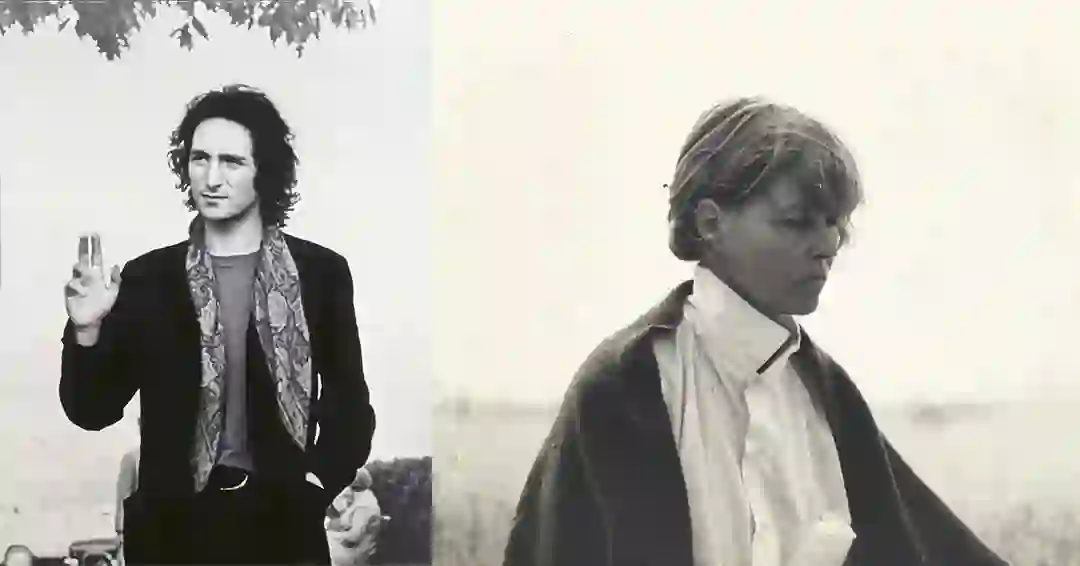Magazzino Italian Art presented Artists' Writings: The Case of Salvo and Barbara T. Smith, a virtual conversation between Lisa Andreani, curator, archivist, and member of the Scientific Committee at Archivio Salvo, and Pietro Rigolo, Associate Curator at the Getty Research Institute and co-editor of The Way to Be, a newly published memoir by the artist Barbara T. Smith. The talk was moderated by Roberta Minnucci, the 2022-2023 Scholar-in-Residence at Magazzino. Gathered on the occasion of the release of IO SONO SALVO—published by NERO Editions in 2023—this conversation covered the significance of each artist’s autobiographical writing in their practice and historiography.
About Lisa Andreani
Lisa Andreani is a curator and art historian. From 2020 through 2022, she served as the Curatorial and Editorial Coordinator at MACRO—Museum for Preventive Imagination in Rome. In 2019 she was a fellow of the Global Modernism Studies research program, studying at the Bauhaus Dessau Foundation in Germany and the Victoria & Albert Museum in London. In 2019, she coordinated the production of Romanistan, a film by Luca Vitone, and co-founded REPLICA: a curatorial and research project investigating artist books. She has collaborated with various institutions and publishers including Fondazione Arnaldo Pomodoro in Milan, Fondation Carmignac in Paris-Porquerolles, Humboldt Books in Milan, Mousse Magazine & Publishing, Milan, and NERO Editions, Rome. Since 2018, she has worked as an archivist and researcher at Archivio Salvo as a member of the Scientific Committee.
About Pietro Rigolo
Receiving his PhD from the University of Siena, Italy, Pietro Rigolo is the Associate Curator for Modern and Contemporary Collections at the Getty Research Institute in Los Angeles, where he has co-curated the exhibitions Harald Szeemann: Museum of Obsessions, 2018, Barbara T. Smith: The Way to Be, 2023, and co-edited the accompanying publications. He has lectured internationally, and has written essays for the Castello di Rivoli museo d’arte contemporanea, Fondazione Nicola Trussardi, Istanbul Biennale, and Pirelli HangarBicocca, among others.
About Roberta Minnucci
Roberta Minnucci is an art historian and curator specializing in postwar Italian art. Prior to joining Magazzino Italian Art as the current Scholar-in-Residence, she obtained her PhD from the University of Nottingham with a thesis which examined Arte Povera’s engagement with cultural memory. In 2021, she was a Rome Award holder at the British School at Rome and the recipient of the first edition of the “Researching and Rewriting Contemporary Art History” Scholarship promoted by Fondazione Baruchello in collaboration with the Centre of Research for Italian Abstract Art, Università La Sapienza, and Università Cattolica. Her articles and essays have been published in peer-reviewed academic journals and exhibition catalogues. She has gained curatorial and research experience from a variety of art institutions including: Tate Modern, Estorick Collection of Modern Italian Art, Christie’s, Southampton City Art Gallery, Castello di Rivoli Museum of Contemporary Art, and Museo Fondazione Pino Pascali.
About Salvo
Salvo (Born in 1947 in Leonforte, Enna, Sicily; Died in 2015 in Turin, Italy) trained as a painter and began his creative career when he moved to Turin in 1956. Akin to the Arte Povera movement blossoming in the city, and influenced by contact with artists such as Sol LeWitt, Robert Barry, and Joseph Kosuth, Salvo moved away from his traditional training and developed a practice rooted in conceptual research. In 1973, Salvo returned to painting, which was considered an unconventional choice at the time. Salvo conceived of painting as a compliment to the language of conceptual art, and through a fifty-year career, he pursued personal research in constant dialogue with the past.
About Barbara T. Smith
Barbara T. Smith (Born in 1931 in Pasadena, California) lives and works in her hometown. She received her BFA from Pomona College in 1953, and her MFA from the University of California in 1971. Her work explores concepts that strike at the core of human nature, including sexuality, physical and spiritual sustenance, technology, and death. Her recently published memorial and the accompanying exhibition at the Getty Research Institute in Los Angeles—both titled The Way to Be—explore the artist's first fifty years, a time marked by dramatic upheavals in her personal life as well as the development of her most pioneering works, including her Xerox art and radical early performances.
